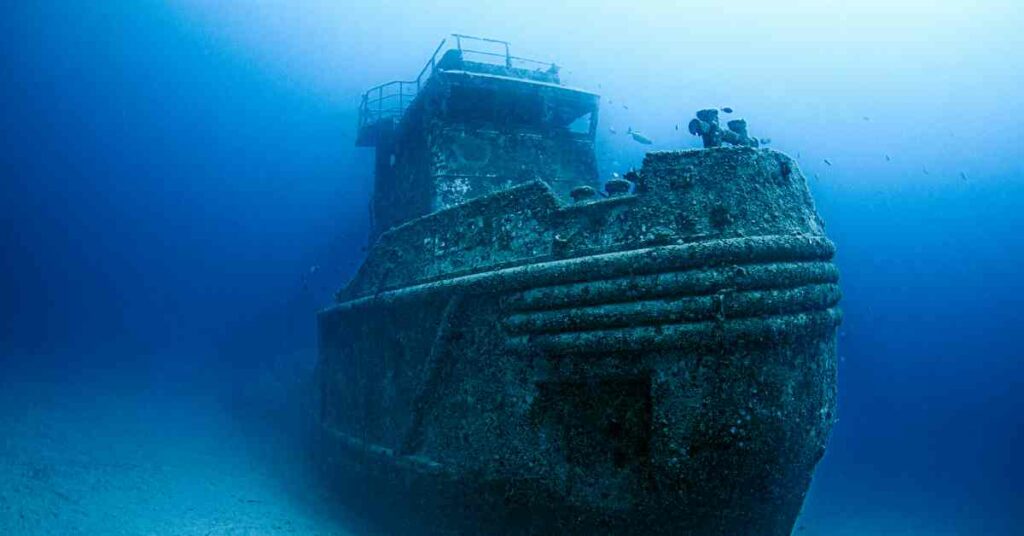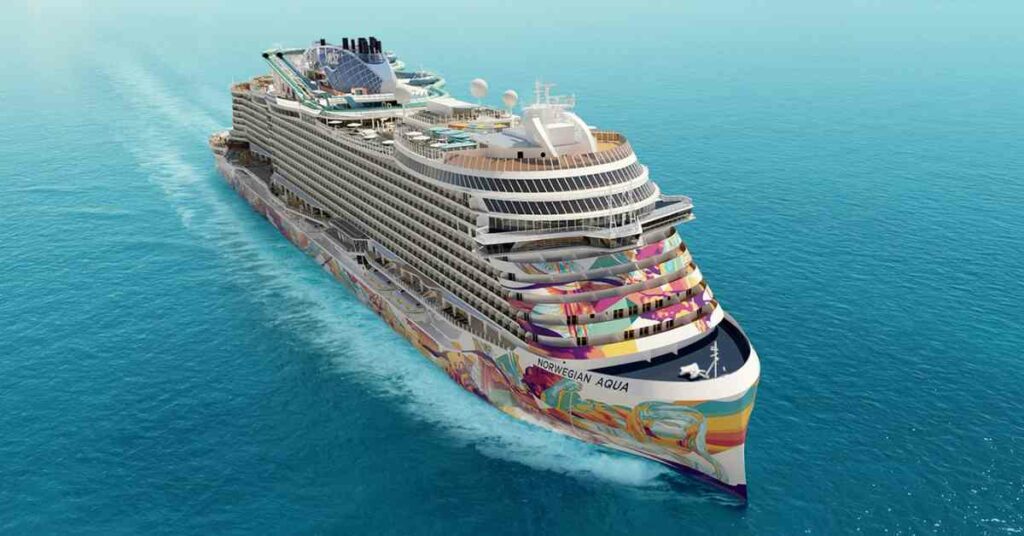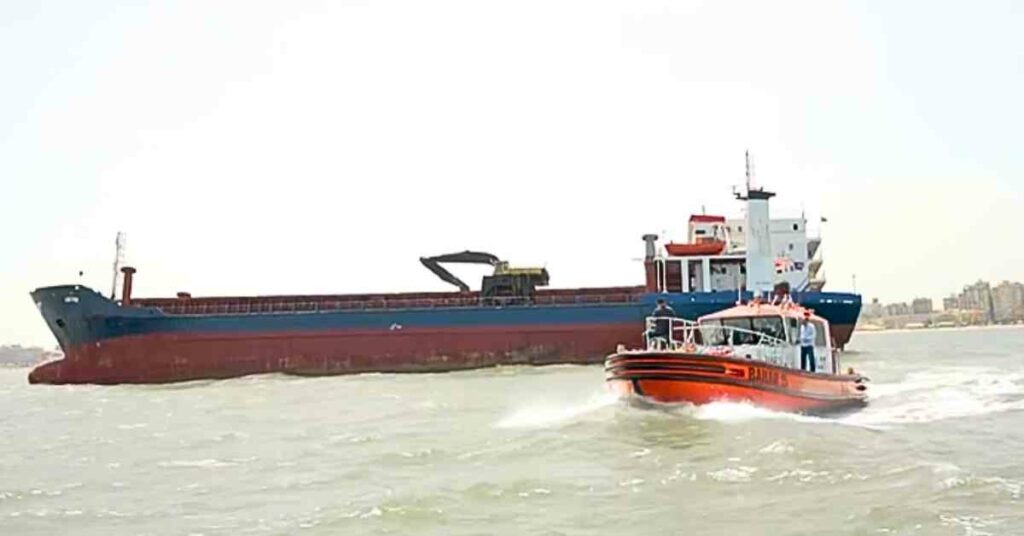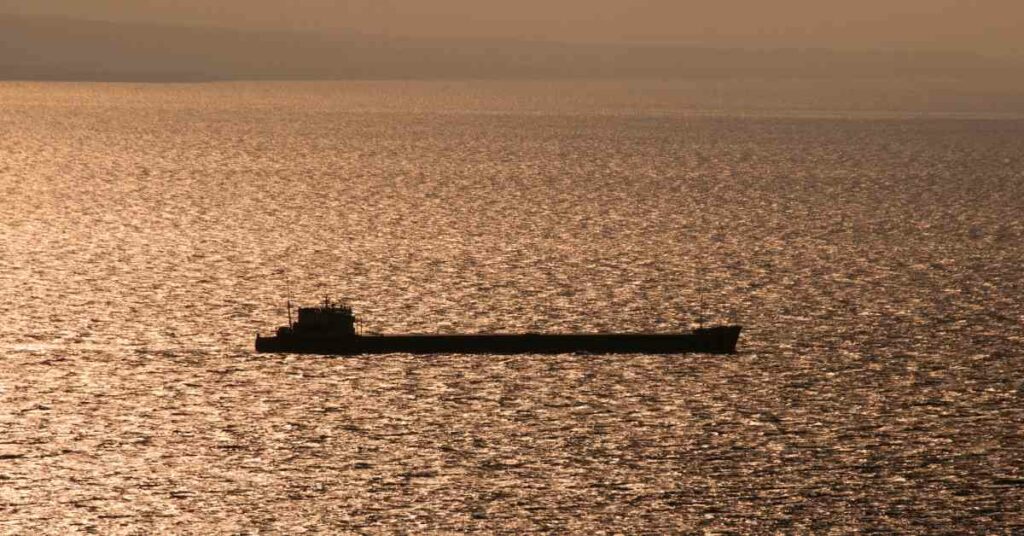Maersk To Change Fuel Adjustment Surcharge Ahead Of 2020 Sulphur Cap
The new BAF surcharge aims at recovering the Maersk Line costs of compliance with the global sulphur cap which enters into force on 1 January 2020. This regulation has been developed and adopted by the International Maritime Organisation (IMO), a specialised agency under the United Nations (UN). Whereas today ships can use fuel with a sulphur content of 3.5%, the new sulphur cap will be 0.5%.
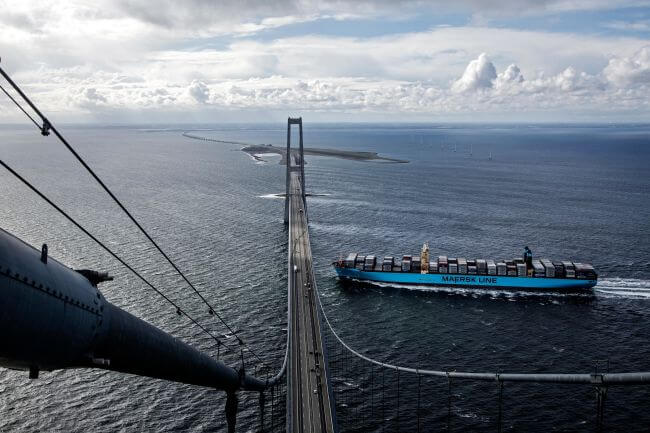
To become compliant shipowners will have to invest in compliant fuels, LNG or scrubber technology. This is expected to lower global shipping’s sulphur emissions, a known source for respiratory disease and acid rain, by more than 80%.
“We fully support the new rules. They will be a significant benefit to the environment and to human health”, says Vincent Clerc, Chief Commercial Officer, A.P. Moller – Maersk A/S. “The 2020 sulphur cap is a game changer for the shipping industry. Maersk preparations to comply are well underway and so are our customers’ efforts to plan ahead. The new BAF is a simple, fair and predictable mechanism that ensures clarity for our customers in planning their supply chains for this significant shift.”
The regulation will bring increases and uncertainty to fuel costs for shipping. The BAF surcharge is designed to recover increases in fuel-related costs. It will be charged separately from Maersk Line’s freight rate.
According to industry estimates, more than 90% of the global vessel fleet will be relying on compliant fuels when the sulphur rules step into force on 1 January 2020. This will also be the case for the Maersk Line fleet, despite a recent investment in a limited number of scrubbers.
Based on expected differences in price between current 3.5% bunker fuel and compliant 0.5% fuel, external sources estimate the additional cost for the global container shipping industry to comply could be up to USD 15 billion. Maersk Line expects its extra fuel costs could exceed USD 2 billion.
Two key elements to give predictability
The BAF replaces Maersk Line’s current Standard Bunker Adjustment Factor (SBF) surcharge and consists of two key elements; the fuel price which is calculated as the average fuel price in key bunkering ports around the world, and a trade factor that reflects the average fuel consumption on a given trade lane as a result of variables like transit time, fuel efficiency and trade imbalances between head haul and backhaul legs.
Combining the two factors give customers full predictability of their costs at any given fuel price both before and after 2020. To allow customers to familiarise with the changed formula, Maersk Line’s BAF surcharge will be introduced on 1 January 2019.
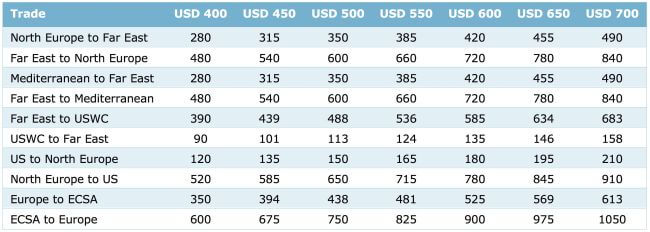
EXAMPLES only of BAF tariffs (USD/FFE) for standard (dry) containers at different fuel prices (USD/ton), for selected trades.
Press Release: maersk.com
Disclaimer :
The information contained in this website is for general information purposes only. While we endeavour to keep the information up to date and correct, we make no representations or warranties of any kind, express or implied, about the completeness, accuracy, reliability, suitability or availability with respect to the website or the information, products, services, or related graphics contained on the website for any purpose. Any reliance you place on such information is therefore strictly at your own risk.
In no event will we be liable for any loss or damage including without limitation, indirect or consequential loss or damage, or any loss or damage whatsoever arising from loss of data or profits arising out of, or in connection with, the use of this website.
Disclaimer :
The information contained in this website is for general information purposes only. While we endeavour to keep the information up to date and correct, we make no representations or warranties of any kind, express or implied, about the completeness, accuracy, reliability, suitability or availability with respect to the website or the information, products, services, or related graphics contained on the website for any purpose. Any reliance you place on such information is therefore strictly at your own risk.
Do you have info to share with us ? Suggest a correction
About Author
Marine Insight News Network is a premier source for up-to-date, comprehensive, and insightful coverage of the maritime industry. Dedicated to offering the latest news, trends, and analyses in shipping, marine technology, regulations, and global maritime affairs, Marine Insight News Network prides itself on delivering accurate, engaging, and relevant information.

About Author
Marine Insight News Network is a premier source for up-to-date, comprehensive, and insightful coverage of the maritime industry. Dedicated to offering the latest news, trends, and analyses in shipping, marine technology, regulations, and global maritime affairs, Marine Insight News Network prides itself on delivering accurate, engaging, and relevant information.
Latest Shipping News Articles You Would Like:
Subscribe To Our Newsletters
By subscribing, you agree to our Privacy Policy and may receive occasional deal communications; you can unsubscribe anytime.




